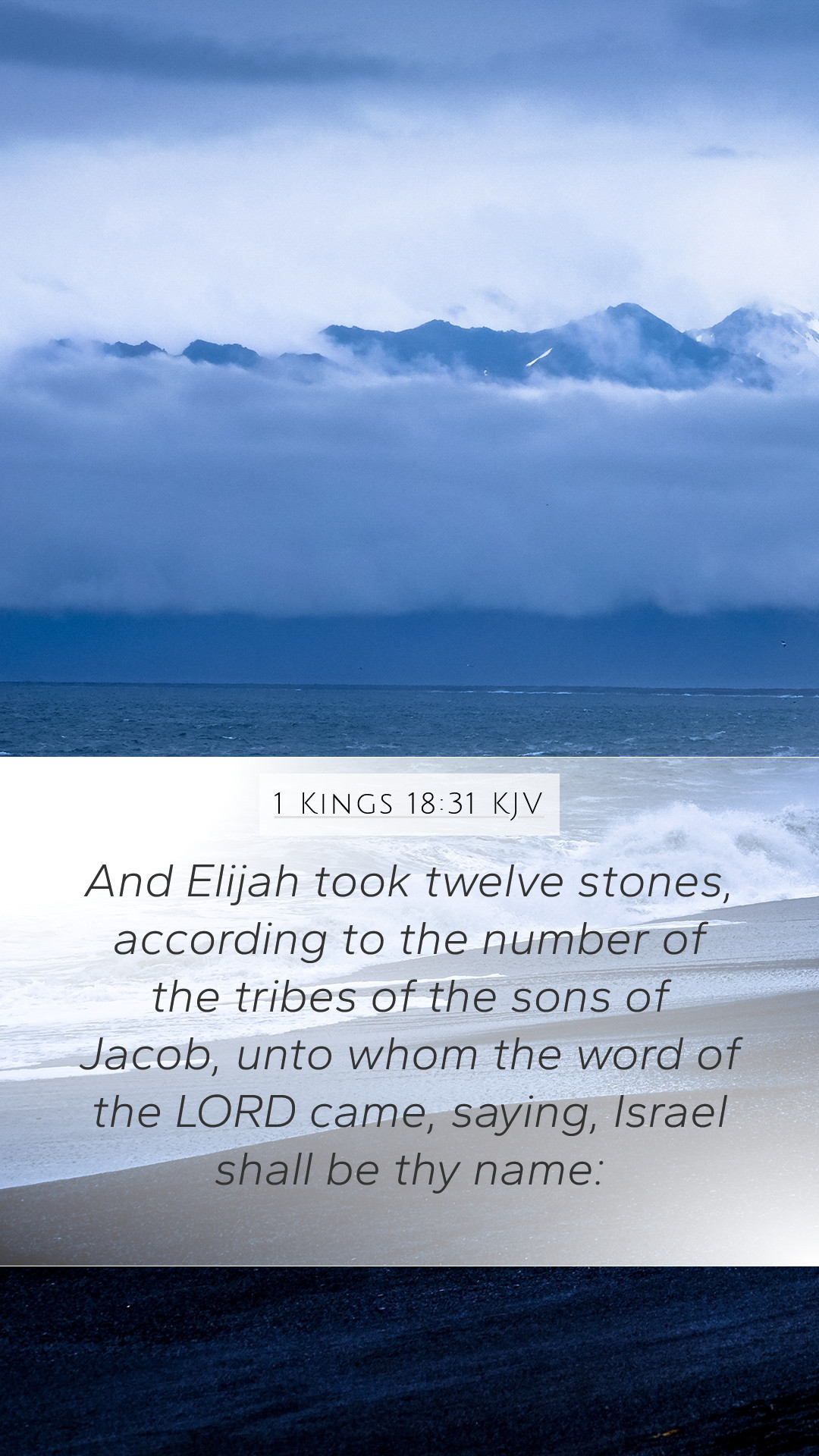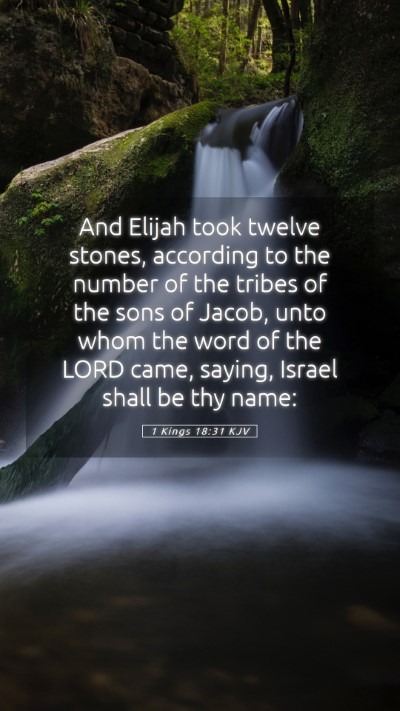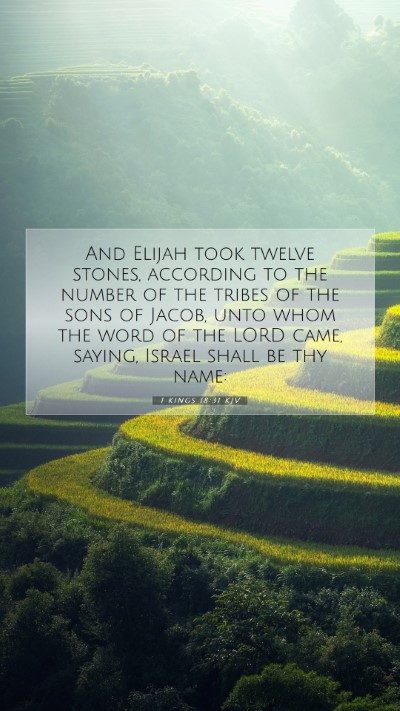Understanding 1 Kings 18:31
The verse 1 Kings 18:31 marks a significant moment in the narrative of Elijah's challenge against the prophets of Baal. Here, Elijah is not merely performing a ritual; he is making a declaration of faith and a profound statement about God's sovereignty amidst the idolatry of Israel.
Verse Text
“And Elijah took twelve stones, according to the number of the tribes of the sons of Jacob, to whom the word of the Lord came, saying, ‘Israel shall be your name.’” (1 Kings 18:31)
Verse Meaning and Interpretation
The interpretation of this verse can be derived from various public domain commentaries:
-
Matthew Henry:
Henry emphasizes the importance of unity and the covenant with God's people, signified by the twelve stones that represent the tribes of Israel. Each stone serves as a reminder of God's pact with Jacob and his descendants, reaffirming the identity of the people as God’s chosen ones.
-
Albert Barnes:
Barnes points out that Elijah's actions were symbolic. The twelve stones represent not only the twelve tribes of Israel but also serve to remind the people of their roots in God. This act underlines the call to return to the true God amidst their straying towards idol worship.
-
Adam Clarke:
Clarke elaborates on the significance of Elijah’s reference to Jacob, whose name was changed to Israel after wrestling with God. This act reflected Israel's struggle and relationship with God, emphasizing the idea of perseverance in faith for the community even in troubled times.
Key Insights from Commentaries
From the commentaries, we gather several key insights about this verse:
- Covenantal Identity: The twelve stones signify the covenantal identity of Israel, which is a reminder of their commitment to God and His promises.
- Symbolism of Repentance: Elijah’s actions call the people to repentance and a return to true worship, moving away from Baal worship.
- Spiritual Restoration: The mention of Jacob invokes themes of struggle and transformation, showcasing God's power to restore His people.
- Historical Context: Understanding the historical backdrop of idolatry in Israel allows for a deeper appreciation of Elijah's actions and words.
Application of the Verse
This verse carries several applications for contemporary believers:
- Reaffirming Identity: Just as the stones represented Israel’s identity, believers today are encouraged to recognize and reaffirm their identity in Christ.
- Call to Faithfulness: The call to remove idols from our lives—be they modern distractions or sinful habits—remains pertinent.
- Wrestling with Faith: Like Jacob, believers may find themselves wrestling with God in search of clarity, faith, and direction in their lives.
Cross References
1 Kings 18:31 is related to various cross references that provide depth to its understanding:
- Genesis 32:28: The passage where Jacob wrestles with God and receives the name Israel.
- Deuteronomy 9:5: A reminder of God's covenant with Israel and their special status among nations.
- 2 Chronicles 7:14: A call for humility and repentance among God's people, echoing the themes of Elijah's challenge.
- James 1:6-8: The need for faith without doubting, paralleling Elijah's boldness before the worshippers of Baal.
Conclusion
The analysis of 1 Kings 18:31 is vital for anyone engaged in Bible study, whether in Bible study groups or through online Bible study resources. It encourages individuals to reflect on their own faith journeys and offers profound Bible study insights for understanding Scripture better. The verse stands as a testament to God's unwavering presence and the call to worship Him alone.


